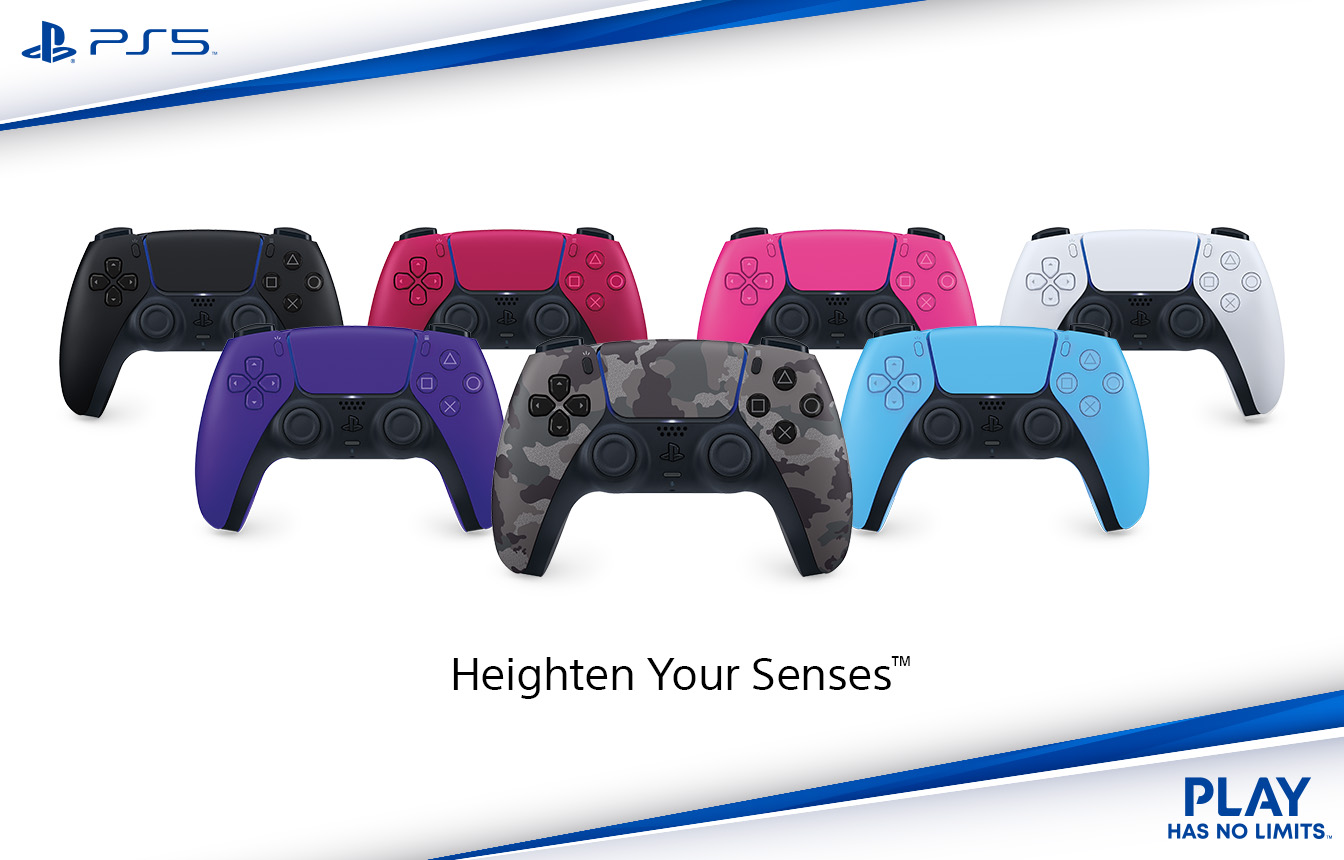One of the fun side effects of the massive popularity of the original Dark Souls was the endless string of suggestions for potential offshoots. Samurai Souls. Cowboy Souls. Sci-Fi Souls. Dungeons & Dragonsouls. Anime Souls.
Especially for that last one, it was always a question of when, not if. Someday, somebody would make such a game, and it seemed that promise might finally be fulfilled when Bandai Namco announced Code Vein back in 2017. Calling the game “anime souls” is in no way an insult—as we’ll get to in a moment, it never shies away from that label—but the question of if it could live up to the idea lingered. In the days since the reveal trailer two years ago, I’d felt a looming sense of dread about how the game might turn out, which was then amplified when it faced a year-long delay from its original release date of last September.
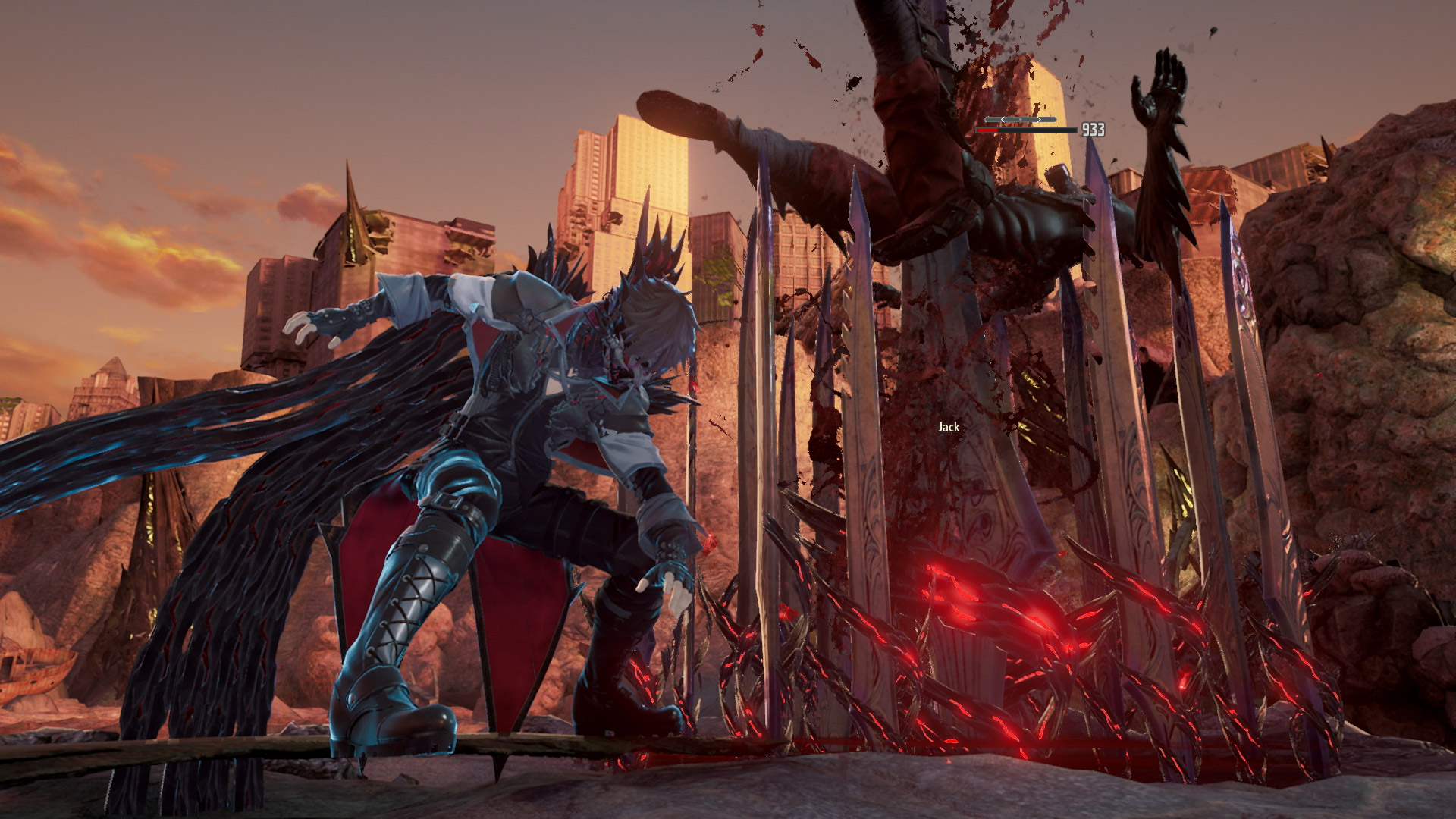
Code Vein, in a lot of ways, is a surprise. The idea of playing a Dark Souls clone made by anyone other than FromSoftware itself has definitely lost its luster by this point, but I can’t deny that Bandai Namco has come up with a very competent copy. Combat isn’t quite as polished, but it’s still satisfying, with a variety of weapons and techniques available to let one find their own groove. (Though trying to focus on spell-like abilities can be tough due to a constant lack of MP.) Enemy encounters are surprisingly easy until they suddenly aren’t once you reach a certain location, but the variety of foes to face off against keeps things feeling fresh, and some of the bosses can definitely be a real bitch to bring down. There’s a wide selection of weapons and armor to find, each item loaded with stats to pay attention to depending on what kind of warrior you want your main character to be.
Speaking of characters, Code Vein—much like the Souls series—lets you customize your own hero, and I’ve got to give credit to how fun the presented options are here. While you can’t get into the nitty-gritty of tweaking every little physical detail of your avatar—and no, there’s no chest slider for those of you wondering—you can go crazy with clothing, color, and custom item options. What I take points away for, however, is the awful choice of a silent protagonist. Yes, it works for Dark Souls, but it does not here. Developers, there’s a simple rule: If you ever have your silent protagonist nodding their head, shrugging their shoulders, or making other gestures in order to respond to another character, just have them talk dammit. Finally, Code Vein apes Dark Souls’ idea of gaining one resource to spend on levelling up, buying items, and upgrading equipment, and which is dropped (but recoverable) every time you die. Given that the explanation for death and rebirth here is vampires instead of Souls’ more ghastly fates, that currency and much of the connecting elements are blood themed. Still, even if the names or terminology are different, if you’ve played even one Souls game, you’ll know exactly what to expect.
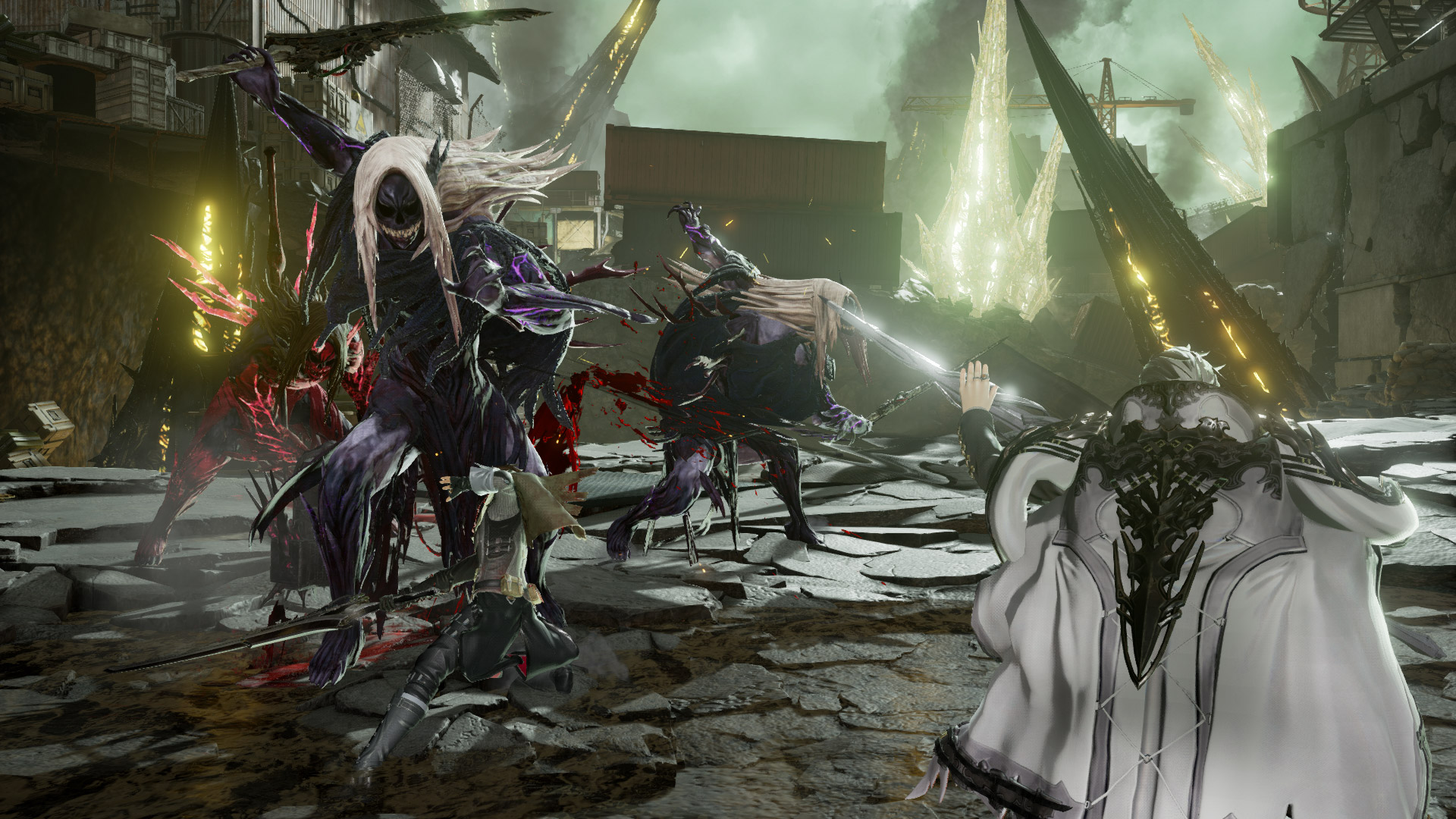
What I didn’t expect is the first of Code Vein’s biggest surprises, and that’s the Blood Code system. At the start of the game, you’re handed three Blood Codes, which are basically the game’s system for determining your class at any given moment. If you want to be more melee-focused, you can activate the Fighter; if you want to pick off enemies from afar, you can run with the Ranger; or if you want to practice in the dark (or light) arts, you can switch to being a Caster. At any point, you can swap from one Blood Code to another, and everything you’ve set up skills- and passive abilities-wise will remain intact.
Those three are only the tip of the iceberg, however. As you play, you’ll discover other Blood Codes, be them received from friends, found lost among the ruins of the world, or perhaps even taken by force. Switching to one will give you a new set of active and passive abilities, but the fun comes in from becoming proficient in those abilities. Many of them, if used enough, will then be available for use by other Blood Codes, meaning that with just a bit of effort, you can start to put together some highly customized character builds. While I’m the type who usually likes to pick one job and stick with it in most games, I became obsessed with using every Blood Code I came across in order to unlock its perks. The benefit to that approach is that you’ll also end up trying out some playstyles you otherwise wouldn’t, perhaps finding a favorite new alternative to try when things get tough (as I did with using heavy mace-type weapons).
Another aspect that won me over in Code Vein—and I cannot believe I’m saying this—is its story. Code Vein’s overarching narrative is anime as all hell, but it’s the fun kind of anime, the kind where you can happily drown in the utter ridiculousness. It is hard at times to appreciate the deeper story that’s woven throughout, either due to the cryptic-to-the-point-of-frustration way it reveals certain story beats, or the fact that the game itself doesn’t always seem to know how to express itself. Given that there’s a lot of human connections behind the world’s events and bosses, those elements should have more symbolism, crafting that bridge between what was and what now is. Instead, too often it felt like pieces of the game existed because something needed to exist there, not because they had specific reason to.
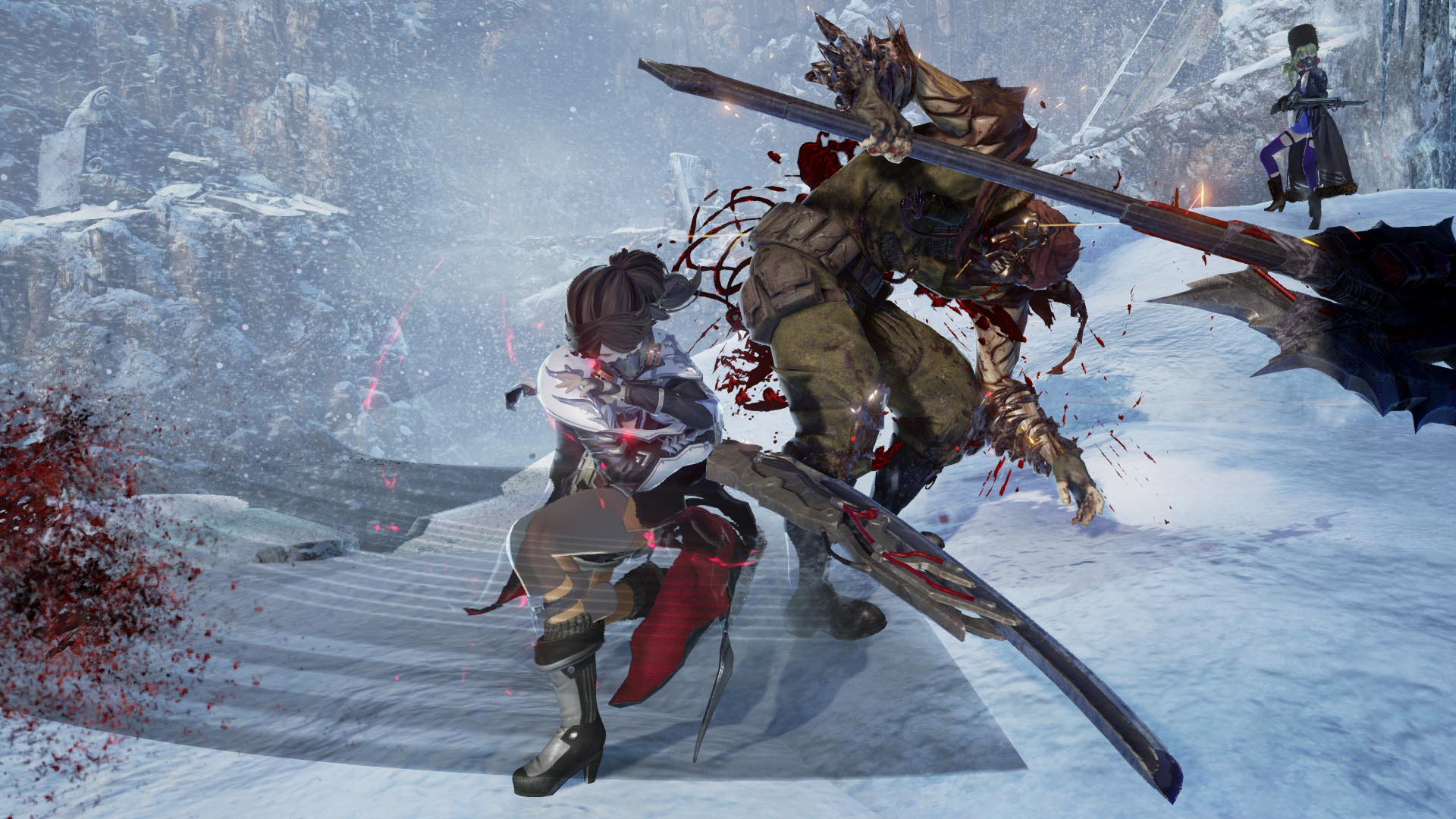
And yet, even with those downsides getting in the way, I was constantly wanting to find out what happens next in this tale of vampires fighting over trees that grow blood while surviving in a world nearly destroyed by a pissed-off lady with psychic powers. Throughout the game, you’re given options to see into the past to retrieve the forgotten memories of teammates and strangers, and every time I entered one of those flashbacks, I legitimately wanted to know what awaited. Your compatriots all fall into standard anime cliches, but I came to actually like almost all of them. There is, however, one element to those characters and their pasts that I’d be remiss to not bring up: Code Vein features an over-abundance of big-tittied girls who live tragic lives so that men can have motivation to go accomplish something. If that kind of thing bothers you, then boy will Code Vein drive you crazy. For me, though, this isn’t exactly the kind of game where I go in expecting gender equality and deeply-crafted character growth, so it didn’t bother me as much as it made me laugh.
The biggest criticism I can levy against Code Vein is one that feels both fair and unfair to knock it for—and that’s that it isn’t enough like Dark Souls. For me, more so than the finely-tuned combat and satisfying difficulty, one of the best parts of the Souls series is the fantastic world building FromSoftware puts into each title. Crumbling castles elicit feelings of both sadness and beauty, ashen lakes are deadly yet serene, bosses terrify but also hint at the good their hearts once contained. Code Vein sets up a world in ruin built upon an interesting premise, and then does so little with all of that potential artistically, be it through the game’s physical locations, emotional weight of what’s happened to the world and its inhabitants, or other points of inspiration both mental and spiritual.
Code Vein ended up being a complete surprise for me, both in how decent the game turned out, and how engrossed I ended up becoming in it. Ultimately, though, Code Vein’s attempts to capture the magic of the game that so obviously inspired it come up short, though I suppose it is thematically appropriate that it should do so: Vampires are great at purloining blood, but they don’t have much experience stealing souls.
Note: Given the nature of reviewing games before their launch, I was not able to try out Code Vein‘s multiplayer elements in a live, populated environment. Due to that, the multiplayer portion of the game was not taken into consideration when doing this review.
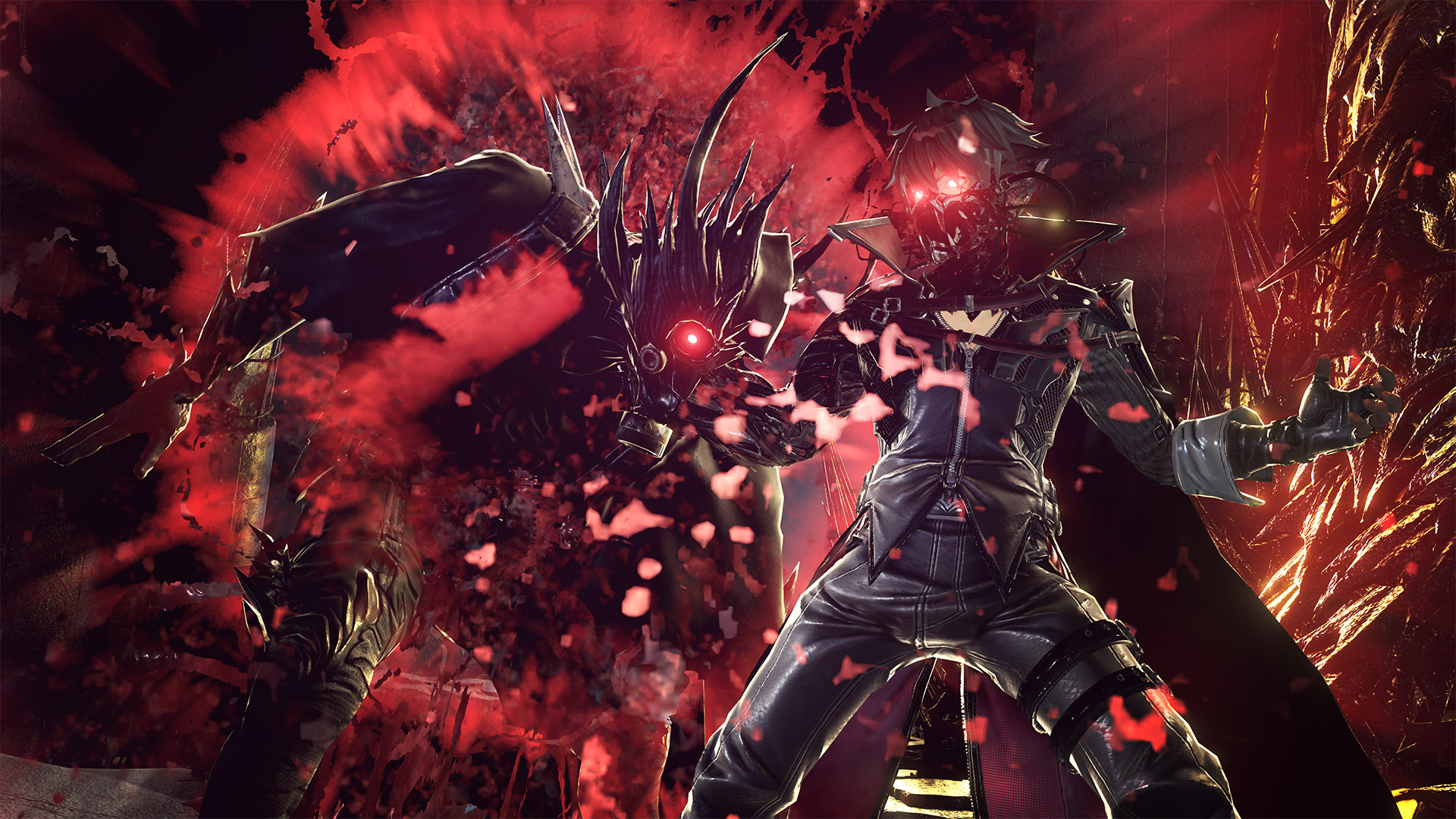
|
★★★★☆
There was a lot of potential for Code Vein to end up little more than a mediocre Dark Souls clone dressed in anime clothing, and yet, it’s actually kinda, sorta, pretty good. The game mixes some long-established gameplay qualities with a totally engrossing class system and a story that’s more enjoyable than it has any right to be. Code Vein won’t be for everyone, even if you’re a Souls fan, but if the overall idea sounds appealing, the execution might surprise you. |
Developer Bandai Namco Publisher Bandai Namco ESRB M - Mature Release Date 09.27.2019 |
| Code Vein is available on PS4, Xbox One, PC. Primary version played was for PS4. Product was provided by Bandai Namco for the benefit of this coverage. EGM reviews on a scale of one to five stars. | |

Mollie got her start in games media via the crazy world of gaming fanzines, and now works at EGM with the goal of covering all of the weird Japanese and niche releases that nobody else on staff cares about. She’s active in the gaming community on a personal level, and an outspoken voice on topics such as equality in gaming, consumer rights, and good UI. Check her out on Twitter and Mastodon.


